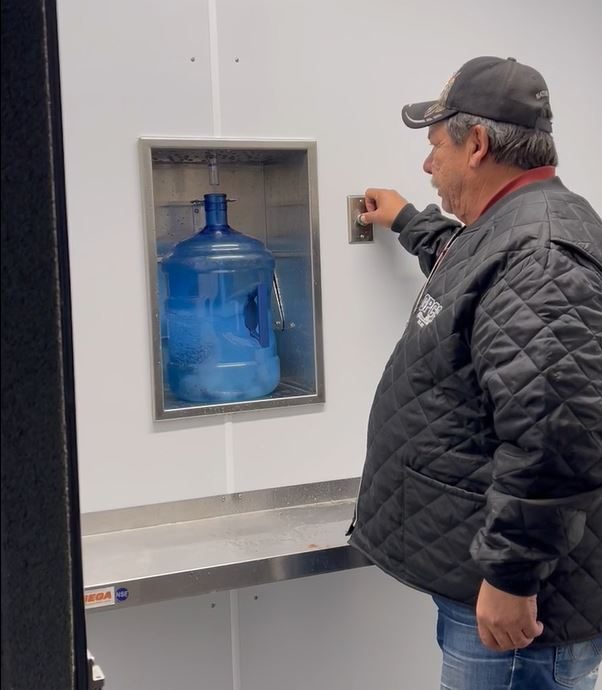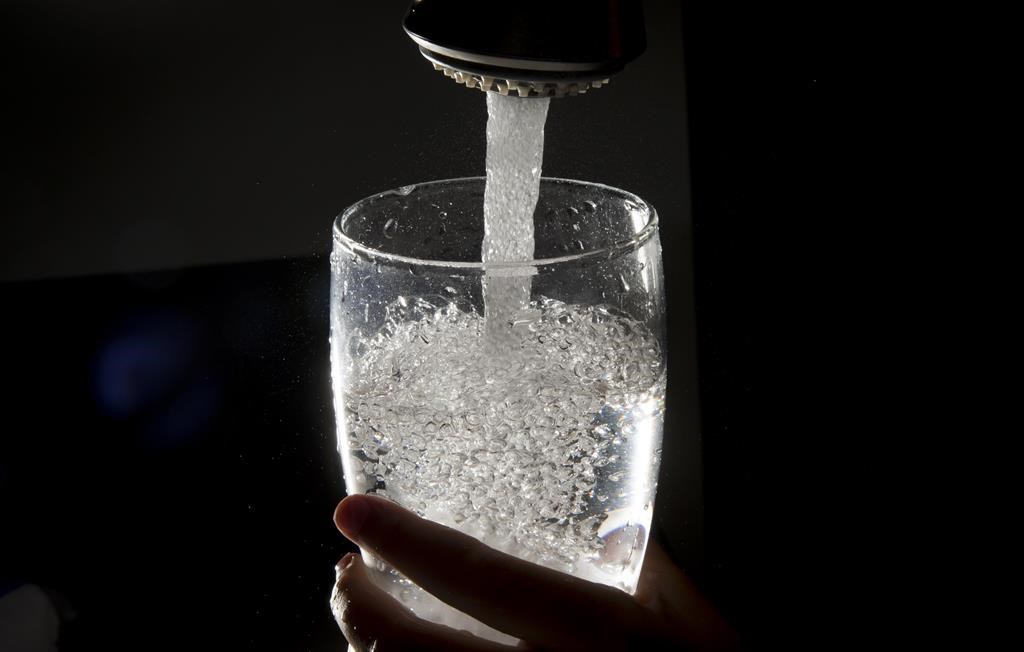A reserve in central Manitoba has access to clean drinking water after what the community says was almost two decades of trucking it in.

On Oct. 29 this year, Nibi Envirotech finished installing a water filtration system, giving residents of Tootinaowaziibeeng Treaty Reserve — also known as Valley River First Nation — access to potable water.
Robin Richards, the CEO of the company, said the pods fill an urgent need.
“The fact that a lot of these communities have gone without clean drinking water for so long seems like a real problem that we need to nip in the bud here as soon as possible.”
In August, Indigenous Services Canada reported three long-term drinking water advisories in three Manitoban communities.
A map by Environment and Climate Change Manitoba shows over 20 short-, medium- and long-term boil water advisories in public water systems around the province.

Richards said in order to meet the need, the “filtration pods” are built into shipping containers. The containers “allow us access (to) more off the beaten-path communities. We can fly them in a helicopter, they could go in on an ice road, and obviously a tilt deck truck could bring them in. So, it’s easy access,” he said.
“It allows us to deliver the water treatment facility a lot quicker than building a brick-and-mortar type place.”
A lot of the communities where Nibi brings pods already have water treatment facilities, but “it might be an emergency benefit (if they) do go on a boil water advisory,” the CEO said. It keeps them from having to truck in water from other areas.
Based on a phone call with a representative at the Valley River band office, Global News learned the community had been travelling to Dauphin and Grandview for clean drinking water upwards of 15 years.
These are respectively 45- and 20-minute drives from the reserve.
The first step in bringing the filtration pods to a community is testing the local water, Richards said. It’s then brought to a lab where the contents are examined to determine “what kind of filters are going to be needed in order to be fully clean.”
He said the pods are usually bottling stations that use ozone to treat the water alongside various filters depending on the lab results.
If the company is tapping into pre-existing infrastructure, though — like a well — “we would have to go with a reverse osmosis system, and then add a slight chlorine drip to sanitize the lines going into the infrastructure,” Richards said.
He said the area around Tootinaowaziibeeng Treaty Reserve is prone to water troubles.
“We have a few pods up near Riding Mountain area. There’s a lot of iron in the water there and a lot of manganese.”
Given the issues in the area, he said Nibi is focusing a lot of its work in that part of the province.
Richards said as a part of the Manitoba Métis Federation, he feels like he is giving back to the community that brought him up by bringing the filtration pods to Indigenous communities.
“Being Indigenously owned and operated, I think really puts us at the forefront to help these communities and better give access to (clean water),” he said. “We need to put this at the front of the paper and make sure people know that there (are) solutions to combat poor drinking water.”
While pods vary in price, Richards said they are roughly $250,000.
— with files from Global’s Melissa Ridgen









Comments